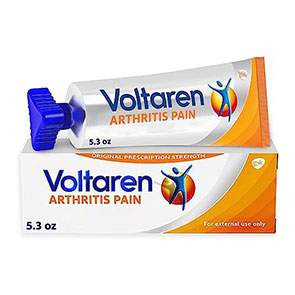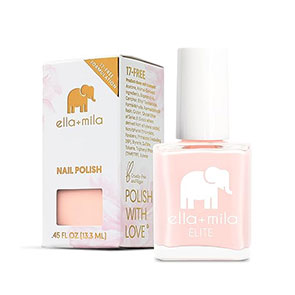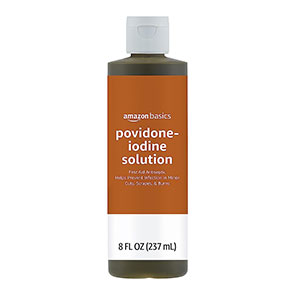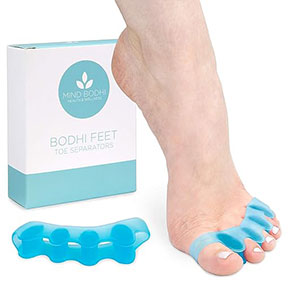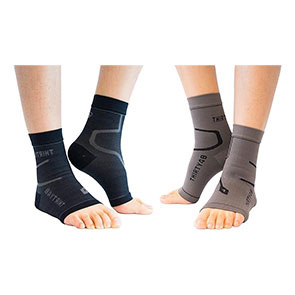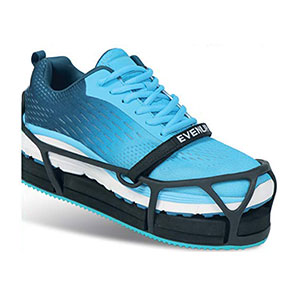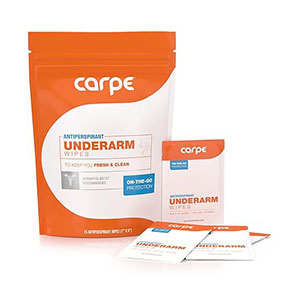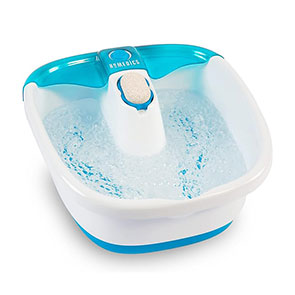Items filtered by date: January 2024
Nurturing Your Feet for Fall Prevention
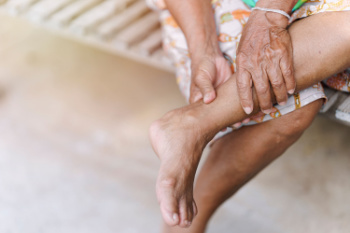
As one ages, the importance of foot care becomes paramount for falls prevention. Start by selecting supportive footwear with slip-resistant soles to navigate slick surfaces with confidence. Regularly inspect your feet for any signs of discomfort, changes, or potential issues that may compromise stability. Moisturize to prevent dryness, as cracked skin may lead to instability. Incorporate gentle stretching exercises to maintain flexibility, enhancing overall balance and coordination. Mindful foot hygiene, including regular washing and drying, helps ward off infections that could affect mobility. Stay vigilant in choosing appropriate footwear for different activities, ensuring a snug fit and proper arch support. By embracing these foot care practices, you can create a solid foundation for fall prevention. Falling can impact the feet, and as these practices are implemented, falling mishaps may be prevented. If you are looking for additional falls prevention techniques, it is suggested that you schedule an appointment with a podiatrist.
Preventing falls among the elderly is very important. If you are older and have fallen or fear that you are prone to falling, consult with Kinna Patel, DPM from Sava Podiatry & Wellness Centers. Our doctor will assess your condition and provide you with quality advice and care.
Every 11 seconds, an elderly American is being treated in an emergency room for a fall related injury. Falls are the leading cause of head and hip injuries for those 65 and older. Due to decreases in strength, balance, senses, and lack of awareness, elderly persons are very susceptible to falling. Thankfully, there are a number of things older persons can do to prevent falls.
How to Prevent Falls
Some effective methods that older persons can do to prevent falls include:
- Enrolling in strength and balance exercise program to increase balance and strength
- Periodically having your sight and hearing checked
- Discuss any medications you have with a doctor to see if it increases the risk of falling
- Clearing the house of falling hazards and installing devices like grab bars and railings
- Utilizing a walker or cane
- Wearing shoes that provide good support and cushioning
- Talking to family members about falling and increasing awareness
Falling can be a traumatic and embarrassing experience for elderly persons; this can make them less willing to leave the house, and less willing to talk to someone about their fears of falling. Doing such things, however, will increase the likelihood of tripping or losing one’s balance. Knowing the causes of falling and how to prevent them is the best way to mitigate the risk of serious injury.
If you have any questions, please feel free to contact our office located in Smyrna, GA . We offer the newest diagnostic and treatment technologies for all your foot care needs.
The Essence of Proper Foot Health
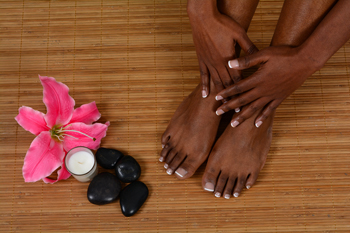
Proper foot health is the cornerstone of overall well-being, laying the foundation for a life of mobility and comfort. At its core, everyday foot care involves maintaining cleanliness and hygiene, with regular washing and drying to prevent infections. It also entails the choice of wearing appropriate footwear, ensuring a balance between comfort, support, and style. Routine inspections for signs of potential issues, such as ingrown toenails or calluses, play a pivotal role in proactive foot care. A regular moisturizing routines prevents dryness and cracking, while fostering skin health. Incorporating gentle exercises and stretches into daily routines strengthens muscles and promotes flexibility, contributing to the prevention of common foot ailments. If you have developed a foot problem that causes pain or discomfort, it is suggested that you make an appointment with a podiatrist.
Everyday foot care is very important to prevent infection and other foot ailments. If you need your feet checked, contact Kinna Patel, DPM from Sava Podiatry & Wellness Centers. Our doctor can provide the care you need to keep you pain-free and on your feet.
Everyday Foot Care
Often, people take care of their bodies, face and hair more so than they do for their feet. But the feet are a very important aspect of our bodies, and one that we should pay more attention to. Without our feet, we would not be able to perform most daily tasks.
It is best to check your feet regularly to make sure there are no new bruises or cuts that you may not have noticed before. For dry feet, moisturizer can easily be a remedy and can be applied as often as necessary to the affected areas. Wearing shoes that fit well can also help you maintain good foot health, as well as making it easier to walk and do daily activities without the stress or pain of ill-fitting shoes, high heels, or even flip flops. Wearing clean socks with closed shoes is important to ensure that sweat and bacteria do not accumulate within the shoe. Clean socks help to prevent Athlete’s foot, fungi problems, bad odors, and can absorb sweat.
If you have any questions please feel free to contact our office located in Smyrna, GA . We offer the newest diagnostic and treatment technologies for all your foot and ankle needs.
Strategies That May Help Prevent Running Injuries
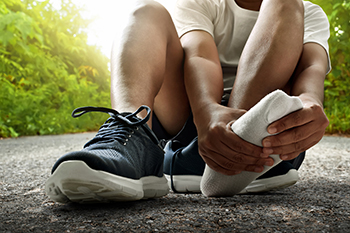
Research reveals that nearly half of recreational runners sustain injuries, often affecting the Achilles tendon, calf, knee, ankle, lower leg, feet, and toes. Various factors contribute to injury risk, including running mechanics, footwear, and abrupt mileage increases. Fortunately, effective strategies exist to prevent running injuries before they disrupt your routine. It is essential to understand that injury prevention is complex, with factors like anatomy, history of injuries, and training methods playing roles. Each runner is unique, possessing distinct anatomical traits and injury histories, making injury prevention a challenging task. To reduce injury risk, experts recommend focusing on building a strong body, maintaining proper form, and choosing suitable footwear. Achieving a balance among these factors can significantly lower the likelihood of injuries, ensuring a rewarding and injury-free running experience. It is also advisable to schedule an appointment with a podiatrist for personalized advice on preventing running injuries.
Exercising your feet regularly with the proper foot wear is a great way to prevent injuries. If you have any concerns about your feet, contact Kinna Patel, DPM of Sava Podiatry & Wellness Centers. Our doctor will treat your foot and ankle needs.
How to Prevent Running Injuries
Many common running injuries are caused by overuse and overtraining. When the back of the kneecap starts wearing out and starts causing pain in your knee, this is commonly referred to as runner’s knee. Runner’s knee is a decrease in strength in your quadriceps and can occur if you’re not wearing properly fitted or supporting shoes. To prevent runner’s knee, focusing on hip strengthening is a good idea, as well as strengthening your quads to keep the kneecaps aligned.
What Are Some Causes of Running Injuries?
- One cause of a common running injury is called iliotibial band syndrome.
- Plantar fasciitis is also another common injury.
- Stress fractures can occur from overtraining, lack of calcium, or even your running style.
Best Ways to Prevent Running Injuries
- Wear footwear that fits properly and suits your running needs.
- Running shoes are the only protective gear that runners have to safeguard them from injury.
- Make a training schedule. Adding strengthening exercises as well as regular stretching can help keep you strong and limber and can lessen the possibility of injuries.
- Stretching keeps muscles limber; this will help you gain better flexibility.
If you have any questions please feel free to contact our office located in Smyrna, GA . We offer the newest diagnostic and treatment technologies for all your foot and ankle needs.
Walking Shoes Versus Running Shoes
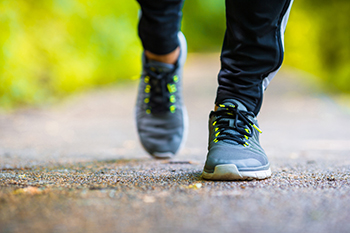
Walking and running shoes, though designed for the common purpose of moving on foot, exhibit distinct characteristics tailored to the biomechanics of each activity. Walking shoes prioritize stability and cushioning, supporting a heel-to-toe rolling motion characteristic of walking. These shoes often feature a flexible sole to accommodate the natural foot movement during a stroll. In contrast, running shoes prioritize impact absorption and energy return, catering to the repetitive, high-impact nature of running. They typically have enhanced cushioning in the heel and forefoot, coupled with a more significant emphasis on shock absorption to minimize the stress on joints. Additionally, running shoes tend to offer greater flexibility to facilitate the foot's rapid movement. Understanding these differences is vital for choosing the right footwear, as wearing shoes designed for the wrong activity can lead to discomfort, inefficiency, and even potential injury. If you have questions about what type of shoes to buy for your preferred walking or running activity, it is suggested that you consult a podiatrist.
For more information about walking shoes versus running shoes, consult with Kinna Patel, DPM from Sava Podiatry & Wellness Centers. Our doctor can measure your feet to determine what your needs are and help you find an appropriate pair of footwear.
Foot Health: The Differences between Walking & Running Shoes
There are great ways to stay in shape: running and walking are two great exercises to a healthy lifestyle. It is important to know that running shoes and walking shoes are not interchangeable. There is a key difference on how the feet hit the ground when someone is running or walking. This is why one should be aware that a shoe is designed differently for each activity.
You may be asking yourself what the real differences are between walking and running shoes and the answers may shock you.
Differences
Walking doesn’t involve as much stress or impact on the feet as running does. However, this doesn’t mean that you should be any less prepared. When you’re walking, you land on your heels and have your foot roll forward. This rolling motion requires additional support to the feet.
Flexibility – Walking shoes are designed to have soft, flexible soles. This allows the walker to push off easily with each step.
If you have any questions, please feel free to contact our office located in Smyrna, GA . We offer the newest diagnostic and treatment technologies for all your foot care needs.
Do Your Child's Feet Hurt?
Common Foot Problems
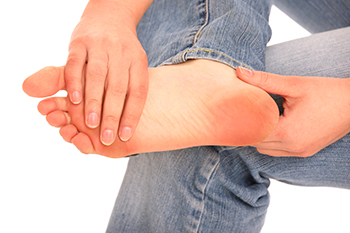
Our feet bear the weight of our bodies and help us to move about. However, they are also susceptible to a range of common problems that can be quite uncomfortable. One prevalent issue is bunions, which occur when the big toe joint becomes misaligned and causes a painful bump. Another common ailment is plantar fasciitis, characterized by sharp heel pain due to inflammation of the tissue that supports the arch of the foot. Ingrown toenails can be particularly bothersome, causing pain and potential infection. Athlete's foot is a fungal infection that leads to itching and peeling skin on the feet. Corns and calluses are also frequent, resulting from friction and pressure on the skin. To keep your feet in top shape, it is essential to be mindful of these common problems. If you have any type of foot pain, it is suggested that you are under the care of a podiatrist who can offer the correct treatment for your problem.
Foot Pain
Foot pain can be extremely painful and debilitating. If you have a foot pain, consult with Kinna Patel, DPM from Sava Podiatry & Wellness Centers. Our doctor will assess your condition and provide you with quality foot and ankle treatment.
Causes
Foot pain is a very broad condition that could be caused by one or more ailments. The most common include:
- Bunions
- Hammertoes
- Plantar Fasciitis
- Bone Spurs
- Corns
- Tarsal Tunnel Syndrome
- Ingrown Toenails
- Arthritis (such as Gout, Rheumatoid, and Osteoarthritis)
- Flat Feet
- Injury (from stress fractures, broken toe, foot, ankle, Achilles tendon ruptures, and sprains)
- And more
Diagnosis
To figure out the cause of foot pain, podiatrists utilize several different methods. This can range from simple visual inspections and sensation tests to X-rays and MRI scans. Prior medical history, family medical history, and any recent physical traumatic events will all be taken into consideration for a proper diagnosis.
Treatment
Treatment depends upon the cause of the foot pain. Whether it is resting, staying off the foot, or having surgery; podiatrists have a number of treatment options available for foot pain.
If you have any questions, please feel free to contact our office located in Smyrna, GA . We offer the newest diagnostic and treatment technologies for all your foot care needs.

